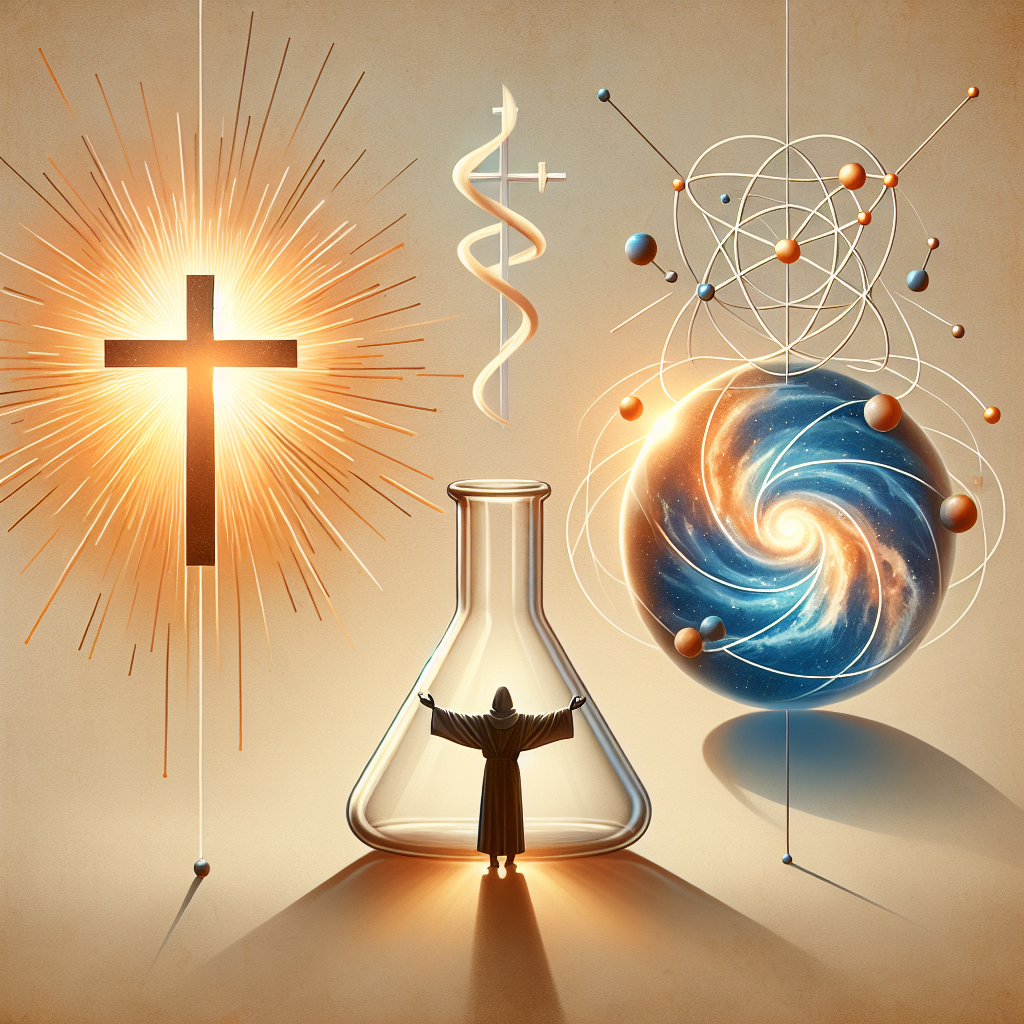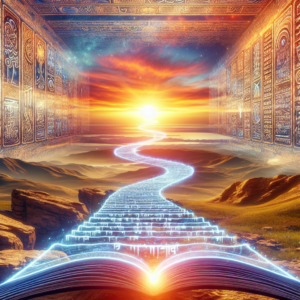In a world where science and spirituality often seem to operate in separate realms, the intersection of Biblical faith, scientific determinism, and the notion of free will invites a rich tapestry of discussion. Are we mere products of a predetermined universe, or is there a Divine Designer guiding us through the labyrinth of life? This article seeks to explore these intriguing concepts, encouraging readers to find harmony between their spiritual beliefs and the scientific understanding of our existence.
The Foundations of Biblical Faith
At the heart of Biblical faith lies the belief in a transcendent God, a Creator who has designed the universe with intention and purpose. This perspective places importance on divine providence—a belief that God is actively involved in the world and in individual lives. For many believers, the narratives and teachings found in Scripture provide a framework that guides moral thinking, instills hope, and offers an understanding of humanity’s place in the cosmos.
Biblical stories often illustrate the concept of purpose amid chaos, exemplifying how individuals can experience profound strength and transformation, even in the face of hardship. For instance, Joseph’s journey from betrayal to leadership showcases how God can use our struggles to fulfill a greater plan, emphasizing a direct interaction between the divine and human experience.
Scientific Determinism and the Laws of Nature
In contrast, scientific determinism suggests that every event or action is the result of preceding events governed by natural laws. From the predictable movements of celestial bodies to the intricate workings of genetics, science reveals a universe that appears ordered and systematically bound by cause and effect. This deterministic view raises pertinent questions: If our choices are merely the outcomes of chemical reactions and evolutionary impulses, where does the sense of agency and free will reside?
The advent of quantum mechanics has further complicated this dialogue, revealing a world where uncertainty and probability play a role at the subatomic level. For some, this introduces an element of randomness that seems at odds with traditional determinism, yet it can also complement a belief in a purposeful universe—one where divine influence weaves through natural laws, creating a space for both structure and spontaneity.
The Concept of Free Will
The debate surrounding free will is central to discussions about ethics, responsibility, and faith. How does one reconcile the idea that humans are equipped with the ability to make choices (free will) in a universe that may be governed by predetermined laws or Divine Design?
Many theologians argue that free will is a gift from God, allowing individuals to exercise their agency and make meaningful decisions. This perspective can coexist with a belief in divine sovereignty, positing that while God is aware of the choices we make, He imbues us with the freedom to follow our paths.
Philosophically, free will becomes a powerful tool for personal growth and responsibility. By acknowledging our ability to choose, we empower ourselves to overcome adversity, foster resilience, and live lives that align with our values and beliefs.
Bridging Faith and Science
The dialogue between science and faith does not have to yield competing narratives; rather, it can reveal a complementary relationship. Many scientists and theologians argue that science explains the "how" of the universe while faith addresses the "why." Understanding the universe’s complexity through scientific inquiry can deepen one’s appreciation of the divine, as both realms invite awe and wonder.
For those with faith, the marvels of the cosmos—from the intricacies of DNA to the vastness of galaxies—can be seen as a reflection of a Creator’s grandeur. Simultaneously, science provides the tools to understand and engage with the world around us, offering insights that can enhance our spiritual journey.
An Encouraging Perspective
Ultimately, the intersection of Divine Design, scientific determinism, and free will invites a meditative exploration of life. Whether viewed through the lens of faith that celebrates a Divine Designer or the curiosity of science that unpacks the mysteries of existence, these concepts encourage us to seek deeper meaning and connection.
We are invited to embrace the complexity of our world, celebrating the interplay of science and spirituality. Life is not merely a product of coincidence; it is a dance of divine orchestration and human choice.
The journey of understanding this intersection may be filled with questions, but it also offers profound opportunities for growth, reflection, and connection. In embracing both the mysteries of faith and the discoveries of science, we can cultivate a holistic view of our existence—one that inspires hope, empowers agency, and encourages a deeper relationship with both the universe and the Divine.
Conclusion
As we seek knowledge and understanding in an ever-evolving world, let us celebrate the beautiful complexity of our existence. Whether driven by faith, curiosity, or a blend of both, each step we take on this journey brings us closer to understanding our true purpose and place in the cosmos. In the end, life takes on a divine significance, filled with wonder and possibility, awaiting our exploration.
Explore and dig up answers yourself with our BGodInspired Bible Tools! Be careful – each interaction is like a new treasure hunt… you can get lost for hours 🙂


